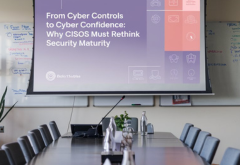Atalla Encryption Solution- The Atalla Encryption solution by HP banks on securing the data over a cloud storage and according to HP offers complete data encryption and key management solution and is easy to automate and integrate.
The solution leverages three core technologies to deliver security in the cloud including-standards-based data encryption with a convenient, fast, and simple management interface, a cloud ready key management using patented split key encryption and Homomorphic key encryption techniques to protect keys even when they are being used.
The offering according to HP includes industry-standard high-grade Advanced Encryption Standard (AES) encryption algorithm with a 256-bit key. Multiple blocks are chained using Cipher-Block Chaining (CBC), and the encrypted salt-sector initialization vector (ESSIV) scheme is used to counter finger printing attacks. It also offers the ease to configure the system to use alternative encryption algorithms as needed
All in All the Atalla Encryption Solution from HP boasts of its three prime features which include-
1)Easy automation and integration which gives an enterprise a quick and a cost effective security solution.
2)A complete data encryption solution which encrypts the entire data layer including databases, files and distributed storage in public, private as well as Hybrid clouds with unreachable keys.
3)A Nimble and Agile application which can be scaled up or down easily to deploy virtual encryption resources in the cloud environment as required.
Symantec’s Encryption Management Server- The Encryption management Server solution from Symantec on the other hand manages and automates security policies to protect sensitive data and avoid potential financial losses, legal ramifications, and brand damage resulting from a data breach and claims it to be the USP of the solution.
The key features of the Encryption Management Server centres around-
1)An Administration Console which cuts the cost of maintaining multiple encryption consoles and minimizing the risk of inconsistent security policies.
2) A Protection Centre which allows integration for multiple security product administration and reporting.
3) Convenient options for Logging, Monitoring, & Reporting to reduce the time needed to audit activities around multiple encryption solutions.
4)Enterprise Integration which is a fine tune policy assignment utilising optional enterprise directory integration, PKI, or organizational system management tools.
‘’Encryption Management Server allows organizations to approach encryption both tactically and strategically. By utilizing the centralized management capabilities of Encryption Management Server, administrators can build their encryption framework gradually while maintaining control and order as the organization grows,’’ says Symantec.
Verdict-Both the encryption solutions by two IT giant claim to be the most cost effective with all in one encryption options and modification option for according to the needs of the enterprises. Since the features of both the solutions appear to be the same more or less, the result as to which is the best offering for an enterprise here seems to be a tie breaker.
 Latest Technology News Today – Get Latest Information Technology Updates and Services Latest Technology News Today – Get Latest Information Technology Updates and Services
Latest Technology News Today – Get Latest Information Technology Updates and Services Latest Technology News Today – Get Latest Information Technology Updates and Services 









